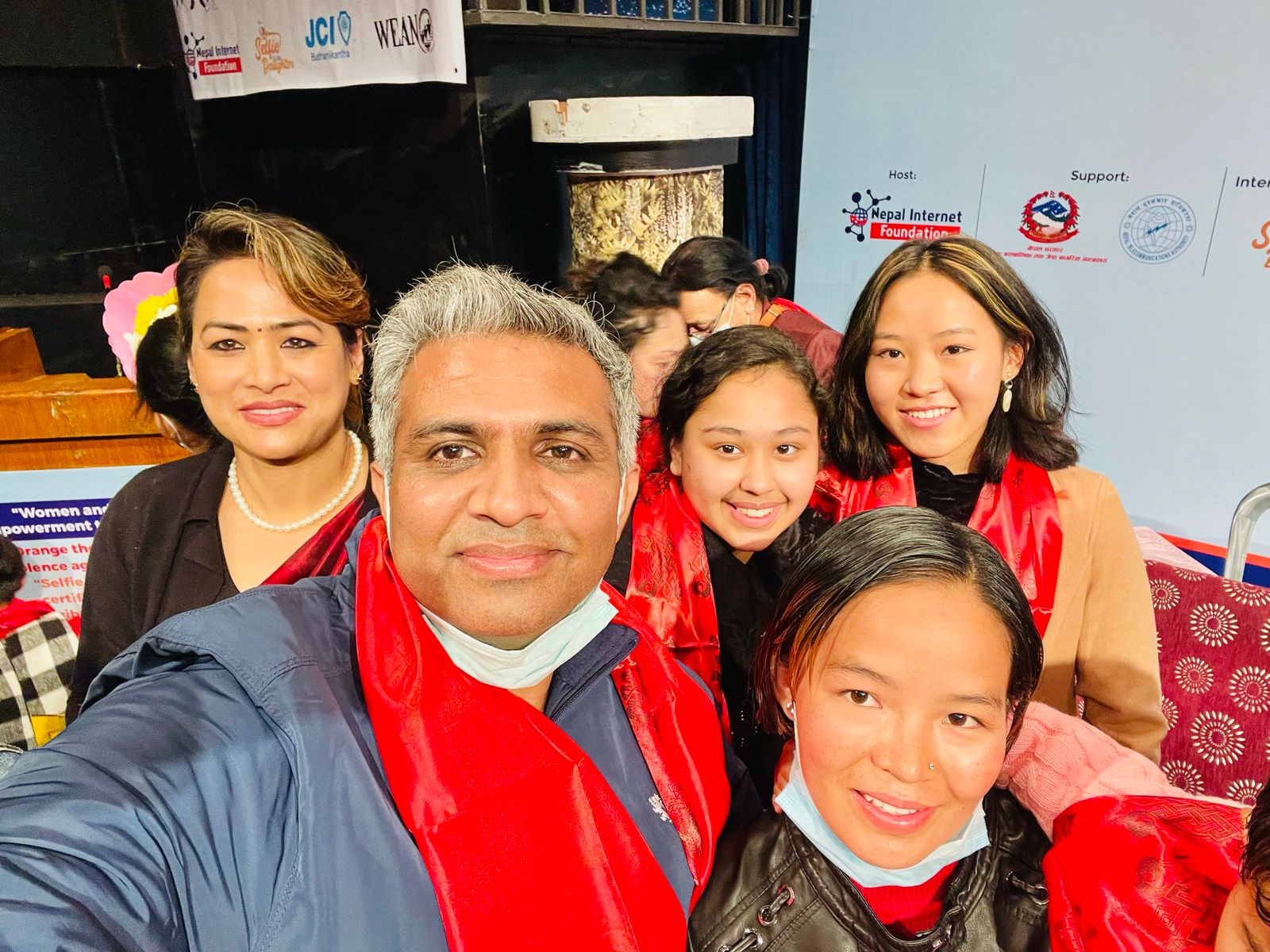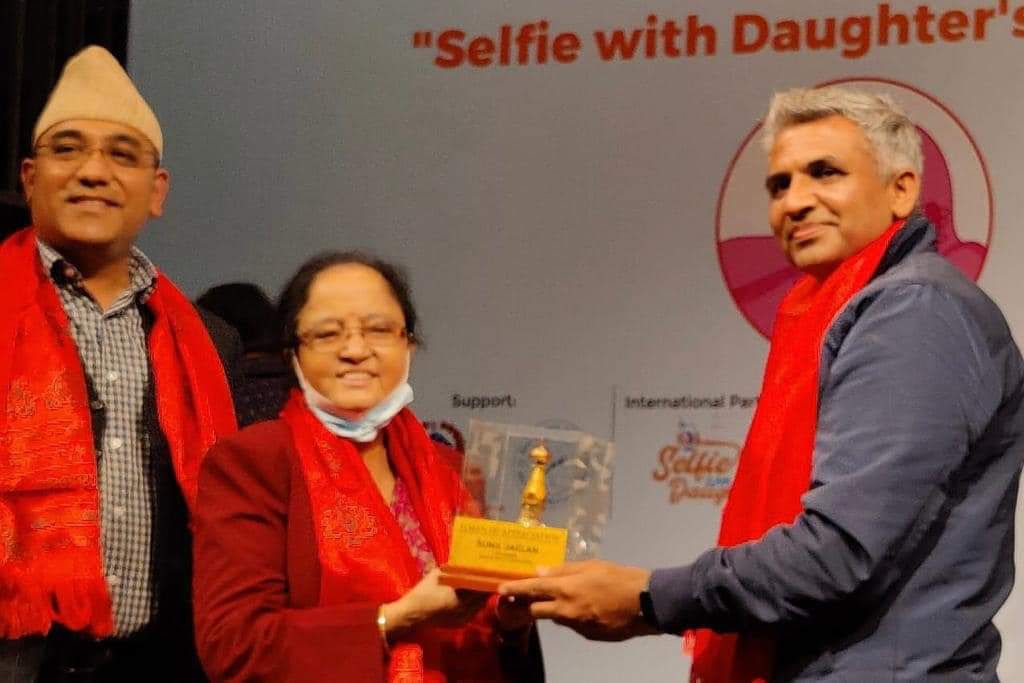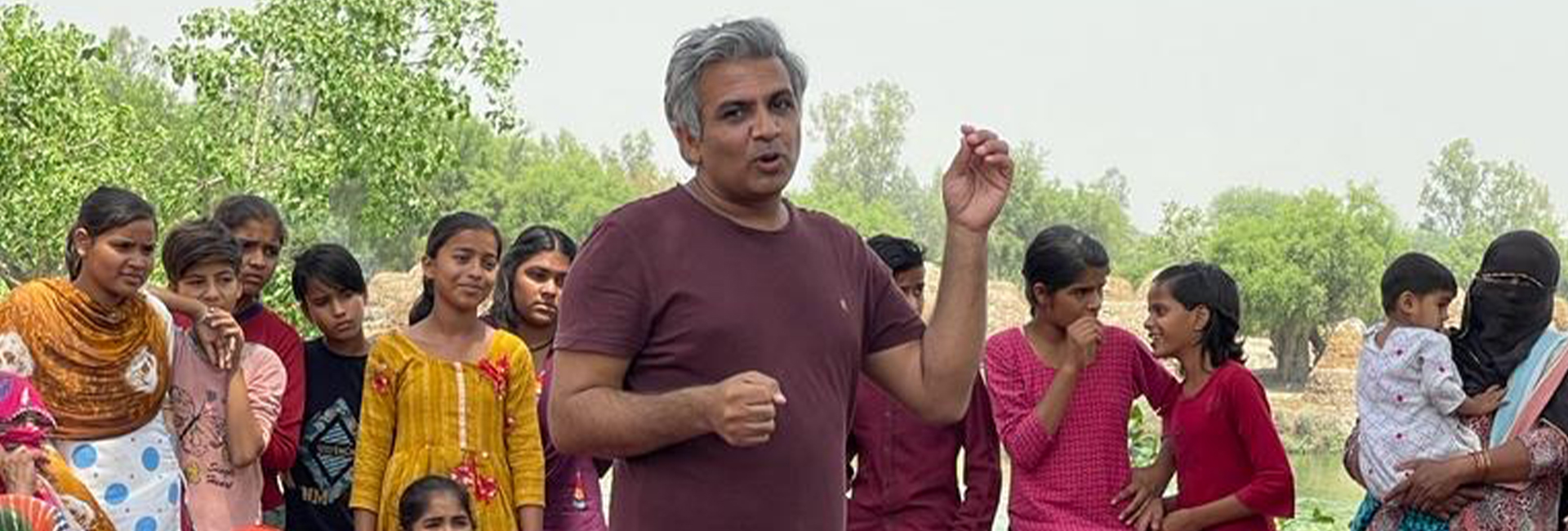(June 2, 2023) Sunil Jaglan, an activist from Haryana, found inspiration in the power of selfies and their ability to connect people. His journey began with a simple idea: a selfie with his daughter. Little did he know that this initiative would not only transform his own life but also capture the attention of the world. The ‘Selfie with Daughter’ campaign, launched in 2015, received the immediate attention of Prime Minister Narendra Modi, in line with the government’s Beti Bachao-Beti Padao campagn. It became a worldwide phenomenon, attracting participation from an array of influential figures, including Hollywood and Bollywood stars, renowned athletes, and prominent politicians.The PM also acknowledged Sunil’s efforts during the 100th episode of Mann Ki Baat in May 2023, lauding his contribution to empowering women. A-listers like Madonna, Vin Diesel, Sachin Tendulkar and Aamir Khan all posted selfies with their daughters, helping to make this initiative, begun humbly by a man from Haryana, became one of the most successful global campaigns ever witnessed. He has contributed in other ways too – Jaglan’s efforts led to female foeticide being treated as murder in Haryana, which once clocked up the second highest number of gender-related infant deaths in the country.

Sunil Jaglan with his daughters
The power of an idea
For Sunil Jaglan, it was an idea that changed his life. He saw the immense buzz that Prime Minister Narendra Modi could create with a single selfie. Could it really be as simple, he wondered, as taking a selfie to make an impact? Still, there was no denying how PM Modi used it to connect with the common man and world leaders alike. He saw people all around him stopping for selfies and Salman Khan dance to “selfie le le re” in Bajrangi Bhaijaan. “PM Modi has mentioned my initiative at least six times in India and abroad since 2015, and gave it a massive push. But I never ever expected that he would call me one day. Talking to him was an extraordinary experience,” smiles Sunil Jaglan, the activist working on education and rights of girl child in Haryana, speaking to Global Indian.
That wasn’t all. Celebrities everywhere took to it, including A-listers like Madonna, Vin Diesel, Sachin Tendulkar, Serena Williams, Ajay Devgn, Aamir Khan and Shikhar Dhawan. “We received a huge response from the US, Canada, Australia and many countries,” says Sunil, who visited Nepal upon being invited by various organisations. He is soon headed to Canada and the US where lawmakers have invited him.
Over the last one decade. Sunil launched about a 100 campaigns aimed at women empowerment, which has brought winds of change in Harayana and helped improve Haryana’s gender ratio.
The fight against female foeticide
Born in Bibipur village in Jind district of Haryana, Sunil recalls how girls would be discriminated against at school and college. “Boys and girls would be made to sit separately and were never allowed to talk with each other. They had separate queues for everything,” says Sunil, who studied in a government school and completed his Bachelor of Science (BSB.Sc Computer Science) from Government PG college, Jind. After working as a teacher initially, Sunil left his job to become the sarpanch of his village in 2010. “The first task I took up was to prepare a website of my village. It was the first time that a gram panchayat had a website of its own,” says a beaming Sunil.
It all started in 2012 when Sunil Jaglan broke convention after he celebrated his daughter’s birth with the “thali bajao” ceremony, which, until then was a custom reserved for the birth of boys. The villagers were under the impression that a boy was born (due to the thali ceremony). They were shocked to learn that it was a girl. “Even the nurses refused to accept sweets as a girl was born,” recalls Sunil. He would go on to take the issue of female foeticide to Maha Khap Panchayat in July 2012 and ensured women participation in those panchayats, a first in Haryana. They passed a resolution that female foeticide be treated as murder.

The social media campaign series
Thereafter, he launched a series of campaigns, all of which resonated with the locals. Prominent among them were Pad Mitra, which is around menstrual hygiene, Laado Swabhimaan, where house nameplates carry the name of the daughter, Beti Ki Badhai, Womaniya GDP, Gaali Bandh Ghar — among others. He once got a grant of Rs one crore from the state government for developmental works and let women in the village decide where and how to spend 50 per cent of that amount. “The idea was to ensure the participation of women in all the development works,” informs the activist.
But it was Selfie with daughter initiative that became a massive hit worldwide. “I realised Selfie was an important tool and decided to integrated it with women empowerment,” informs the 40 year old, who previously organised a race for girls and awarded a kilo of ghee as prize to bring focus to women’s nutrition.
Sunil’s efforts brought about a massive change and the numbers speak for themselves. The sex ratio at birth in the state was 876 in 2015 which went up to 917 in 2022. His home district of Jind, which had a ratio of 871 girls for every 1,000 boys, went up to 996.
The ‘selfie with daughter’ impact
The selfie with daughter, which gradually evolved into a foundation has adopted over 140 villages across various states, including Uttar Pradesh, Madhya Pradesh and Maharashtra. It has more than 8,000 volunteers across the country. “We have volunteers in many countries now,” informs the recipient of several state and national awards including the Rajiv Gandhi Global Excellence award and the Manthan speaker award. His foundation observes ‘Selfie with Daughter’ Day on June 9 every year and felicitates women who work towards encouraging gender equality.

Former President of India Pranab Mukherjee too was a big fan of Selfie with daughter initiative and lent his full support to the activist. “We organised several events (about this campaign) at Rashtrapati Bhavan when he was the President. He encouraged us in every possible way,” recalls Sunil, who also works as a Senior Consultant in Pranab Mukherjee Foundation.
Changing a mindset
So what more needs to be done to empower women? “People at home need to change their mindset towards girls. Only then can we ensure a change in society,” he feels the father of two daughters — Nandini and Yachika. When not working, Sunil likes to indulge himself in sports and movies. “I watch a lot of movies,” declares the big movie buff who does not miss his game of badminton everyday.
Follow Sunil on Twitter.

Good sir